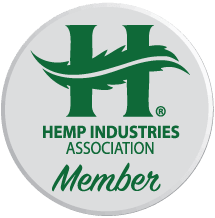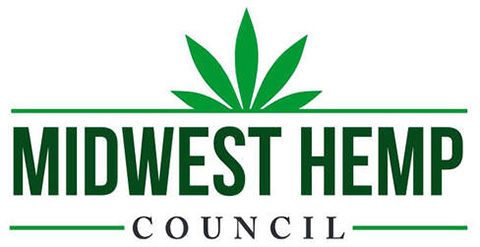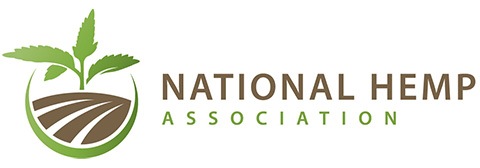


In recent years, Hemp Benchmarks has tracked the financial filings of several publicly traded hemp-cannabinoid product companies as a barometer of demand for CBD and, more recently, various forms of THC manufactured from hemp.
In our previous update, which covered results for Q3 2021, we noted that CBD sales continued to hold largely steady, but at levels slightly depressed from those seen in the second half of 2020, at least for publicly traded companies. Meanwhile, filings from a company that deals in hemp-derived THC products showed impressive growth.
The hemp-CBD market continued to exhibit stability in the final quarter of last year, with the three primary companies under discussion – Charlotte’s Web, cbdMD, and CV Sciences – reporting relatively small sequential shifts in gross revenue.
Charlotte’s Web (CW) reported $24.8 million in revenue in Q4 2021, up 4.6% from the prior period, but down 7.8% year-on-year, from $26.9 million in gross sales in the same period of 2020. For 2021 as a whole, CW’s sales reached $96.1 million, up 1% from the prior year.
cbdMD reported $9.86 million in gross sales for the final period of the 2021 calendar year, up slightly from $9.8 million in Q3 2021, but down 25% year-on-year, from $13.1 million in Q4 2020. 2021’s annual sales of $43.5 million were down 5.2% from 2020’s full-year tally of $45.9 million.
CV Sciences’ Q4 2021 sales declined by 2.2% from the previous period, to $5 million from $5.1 million. The company’s 2021 sales total of $20 million was down 18% from $24.4 million in 2020.
The announcements touting company financials frequently noted strong competition in the hemp-CBD space. CV Sciences called attention to “significant headwinds stemming from the … competitive environment.” Meanwhile, CW’s press release did so obliquely, noting “increased unit sales volumes [were] largely offset by an industry-wide consumer shift to lower priced CBD products; primarily gummies and topical products.”
Additionally, filings from the three companies under discussion repeated what has become a familiar refrain to explain the recent lack of growth in the hemp-CBD market: Namely, “regulatory uncertainty” regarding the compound due to the U.S. Food and Drug Administration’s (FDA) continued declination to allow CBD to be marketed as a dietary supplement or added to foods. cbdMD’s press release cited above goes so far as to state that, beginning in early 2021, “overall CBD consumer demand growth started to decline in the U.S.” as a result of the “lack of regulatory clarity created by the [FDA].”
While the hemp-CBD companies noted above have repeatedly cited a lack of regulatory clarity as an impediment to growth, such uncertainty does not appear to have slowed sales of various forms of THC manufactured from hemp. In fact, cbdMD’s press release states that the FDA’s lack of action on CBD has opened the door for hemp-THC products to the detriment of the former: “This is evident in the introductions of competitive products such as Delta 8, which is now banned for sale in over 30 states and created a negative downward pressure on the CBD market.”
As we have covered since the second half of 2020, delta-8 THC and similar products themselves exist in a gray area in regard to their very legality. In the absence of action from the federal government, however, dozens of states have moved to ban such compounds or regulate them to various extents, with several new developments occurring this month.
In Michigan, the state Cannabis Regulatory Agency (formerly the Marijuana Regulatory Agency) on April 15 withdrew a request for rulemaking that would have established regulations to govern the manufacture of THC products from hemp.
In Georgia, the Atlanta Journal-Constitution reported that a judge “granted an injunction that prevents Gwinnett County District Attorney Patsy Austin-Gatson from enforcing a ban on products containing hemp-derived substances, including delta-8 THC, while litigation proceeds to determine whether they are legal.”
In Tennessee, proposed legislation that would have banned delta-8 THC and similar products was amended to instead regulate and tax them, according to the Nashville Scene. The Scene report notes that the measure under consideration, HB 1927, now “limits the sale of Delta-8 to people 21 and older, establishes a 5 percent excise tax on products that contain Delta-8, and creates licensing and product testing requirements for retailers and manufacturers through the Tennessee Department of Agriculture.”
Despite shifting and idiosyncratic state-by-state regulatory approaches, our primary window into sales trends for hemp-derived THC products – the financial filings of LFTD Partners Inc. – indicates that the sector continued to experience strong growth to close 2021. According to a company deck published earlier this month, LFTD’s Q4 2021 revenue reached $12.8 million, up 45% from the previous quarter. Q4 2021’s gross revenue increased by nearly six times year-on-year, from $2.2 million in Q4 2020. Overall for 2021, the company’s consolidated sales of over $31.6 million also expanded by roughly a factor of six relative to the prior year.
LFTD’s deck also reveals an interesting shift in its business. While delta-8 has become the go-to signifier for hemp-THC products overall, the company’s deck states that, based on Q1 2022 sales, the principle ingredient in products making up 47% of LTFD’s revenue is THCO, with delta-8, delta-9, and delta-10 THC products combining to account for 35% of sales. The company’s reporting also shows that vapes and cartridges are the preferred products for consumers, making up almost two-thirds of sales in Q1 2022, followed by edibles at just over a quarter of sales in the period.
Finally, it is apparent that state-level efforts to regulate or ban hemp-THC products are not impeding their distribution and sales. LFTD’s deck touts an online customer base of 17,000, direct sales to over 1,000 retailers in the U.S., and “hundreds of distributors” reaching “thousands” of additional stores.


